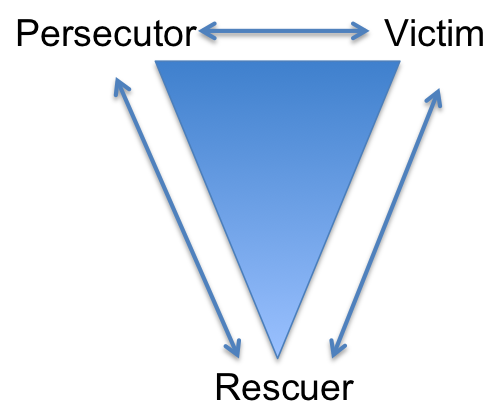Submitted by Sal Silvester on September 5, 2012
The most effective teams have a consistent focus on both structure and relationships. They know that being strong in both areas is critical to maximizing their potential.
By structure I mean that the right components are in place - I call these the cultural building blocks of a team - that enable team success. For example, purpose is clear, communication strategy supports the team's purpose, and norms drive a common and collective way of working together.
Submitted by Sal Silvester on August 23, 2012
 The DiSC Profile is a behavioral style profile developed by Inscape Publishing. The profile is designed to help people understand their differening approaches to work so that ultimately an organization can be more successful. We use DiSC within our team and leadership development programs to help clients:
The DiSC Profile is a behavioral style profile developed by Inscape Publishing. The profile is designed to help people understand their differening approaches to work so that ultimately an organization can be more successful. We use DiSC within our team and leadership development programs to help clients:
Submitted by Sal Silvester on July 31, 2012
Effective delegators know that a one-size fits all approach to delegation isn't very effective. The best leaders adapt how they delegate based on their team members' level of competency and confidence. Here is a simple chart that we use in our leadership development and executive coaching programs in Denver and Boulder, Colorado to show the Directing, Coaching, and Empowering delegation styles.
Submitted by Sal Silvester on July 24, 2012
Reflecting back on my days in the Army, there are two moments that are most memorable for me. The first was an award ceremony where several soldiers, including myself, were recognized at the end of an almost year-long deployment in Turkey. The second was my graduation from Ranger School.
Submitted by Sal Silvester on July 18, 2012
This week we lost an incredible man who made a rich and meaningful contribution to the field of leadership development, and, more importantly, to the lives of many people. Stephen R. Covey will be missed.
In dedication to him, I thought I would share my favorite of his "7 Habits" - Habit 2 Begin with the End in Mind.
Submitted by Sal Silvester on July 11, 2012
 You have already made your decision. You are set on a course of action. The horse is out of the barn. Now is NOT the time to ask for input!
You have already made your decision. You are set on a course of action. The horse is out of the barn. Now is NOT the time to ask for input!
Asking for opinions after the fact — merely because you think it will appease others — will definitely backfire. Your team members can see right through this artificial, insincere gesture.
Submitted by Sal Silvester on July 10, 2012
New leaders often get promoted because they were good at what they did. They rarely receive the training and development to be successful at their new level.
If you are interested in elevating your leadership effectiveness, join us for our introductory People-First Leadership™ Seminar on July 18th in Boulder, Colorado.
This 3-hour seminar will give you insight into our practical and powerful 4-point People-First Leadership model to help ignite your leadership potential and the potential of the people around you.
Submitted by Sal Silvester on July 5, 2012
Imposing your own goals on team members is one of the fastest ways to lose their commitment.
Goal setting is a collaborative process. The role of the leader is to provide coaching to ensure everyone is in line with overall team goals. Make sure any online collaboration tools or other technology you use to support the goal-setting process doesn’t take the place of crucial in-person conversations.
Submitted by Sal Silvester on July 3, 2012
Just a quick shout out to say "Happy 4th of July."
Thank you to the members of the armed forces and those public servants who enable our freedom with their sacrifice, service, and selflessness.
In gratitude,
Sal
Submitted by Sal Silvester on June 30, 2012

The Rescuer
"It's faster to do it myself than to delegate it to others..." or "If I want it done right, I'm the one who has to do it..." or "Let me do this for you..."
These are the words of the Rescuer - the person, or in this case the leader, who solves problems for others that they should solve for themselves.
The Victim
Pages